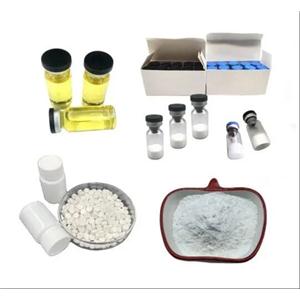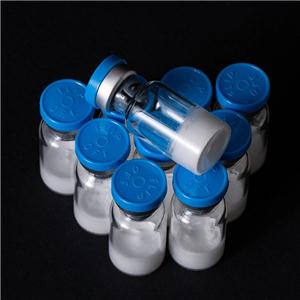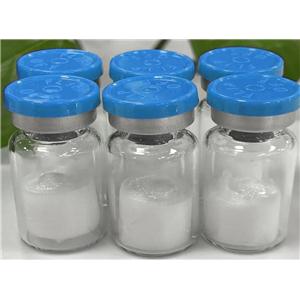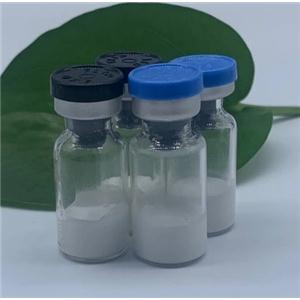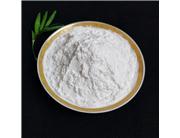| Uses | Delta-Sleep
Inducing Peptide trifluoroacetate salt
H-Trp-Ala-Gly-Gly-Asp-Ala-Ser-Gly-Glu-OH trifluoroacetate salt is a
useful research chemical compound. |
| Description | Delta-sleep-inducing
peptide (DSIP) is a neuropeptide with amino acid sequence
Trp-Ala-Gly-Gly-Asp-Ala-Ser-Gly-Glu and molecular mass 848.81
g/mol. DSIP occurs in both free and bound forms in the hypothalamus,
limbic system and pituitary as well as various peripheral organs,
tissues and body fluids. In the pituitary it co-localises with many
peptide and non-peptide mediators such as corticotropin-like
intermediate peptide (CLIP), adrenocorticotrophic hormone (ACTH),
melanocyte-stimulating hormone (MSH), thyroid-stimulating hormone (TSH)
and melanin concentrating hormone (MCH). Delta-sleep-inducing peptide is
abundant in the gut secretory cells and in the pancreas where it
co-localises with glucagon. |
| Definition | A
nonapeptide that is found in neurons, peripheral organs, and plasma.
This neuropeptide induces mainly delta sleep in mammals. In addition to
sleep, the peptide has been observed to affect electrophysiological
activity, neurotransmitter levels in the brain, circadian and locomotor
patterns, hormonal levels, psychological performance, and the activity
of neuropharmacological drugs including their withdrawal. |
| benefits | Can
restore disturbed sleep patterns;Can promote LH and GH release;Can
reduce persistent/chronic pain;Can modulate cortisol production. |
| Physiological effects | Delta
sleep-inducing peptide (DSIP) has several physiological effects in
addition to its ability to promote sleep in animals. It is also involved
in neuroendocrine regulation and release of anterior pituitary
hormones. In rodents and humans, Delta sleep-inducing peptide (DSIP)
influence in the secretion of adrenocorticotropic hormone (ACTH),
luteinizing hormone (LH) and growth hormone (GH). It also plays a role
in the regulation of the circadian rhythms and and can help restore
disturbed patterns of sleep. |

 China
China
